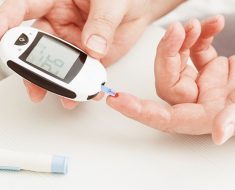TOPLINE:
A meta-analysis finds that tea drinking may reduce the risk for colorectal cancer (CRC) by 24%, but the estimate is “uncertain,” and the actual effect on CRC risk can range from a reduction of 51% to an increase of 18%, researchers say.
METHODOLOGY:
-
Researchers conducted a systematic review and meta-analysis of 15 studies (11 cohort, three case-control, and one randomized controlled trial) with nearly 2.7 million participants.
-
The studies were conducted in Asia, North America, Europe, and Oceania between 1986 and 2015 and included black and green tea.
-
Tea consumption was dichotomized as <1 cup vs ≥1 cups daily. A random effects model was used for data analysis.
TAKEAWAY:
-
No statistically significant association was found between tea consumption and CRC risk (relative risk [RR], 0.76).
-
By geographic region, results of an American subgroup analysis suggested tea drinking might be protective against CRC (RR, 0.33), while data from the UK (RR, 1.45) and Italian (RR, 1.15) subgroups had opposite results.
-
In subgroups by tea type, green tea was associated with a lower CRC risk (RR, 0.05).
-
Sensitivity analysis revealed that the effect on CRC risk can range from a reduction of 51% (RR, 0.49) to an increase of 18% (RR, 1.18).
IN PRACTICE:
“Taken together, this meta-analysis suggests that tea consumption may not be linked to the development of CRC. These relationships still need to be confirmed by additional well-designed large prospective studies and randomized clinical trials,” the authors write.
SOURCE:
The study, with co–first authors Yu Huang and Qiang Chen, with the Third Hospital of Hebei Medical University, Shijiazhuang, China, was published online August 31 in BMC Gastroenterology.
LIMITATIONS:
There was a high level of heterogeneity in the original studies, as well as variations in the quantity and types of tea consumed and in the design and quality of the studies. Some studies did not account for potentially important variables, such as alcohol use and diet.
DISCLOSURES:
The study was supported by grants from the Hebei Provincial Natural Science Foundation and the Hebei Provincial Department of Science and Technology. The authors have disclosed no conflicts of interest.
For more news, follow Medscape on Facebook, X, Instagram, and YouTube.
Source: Read Full Article





